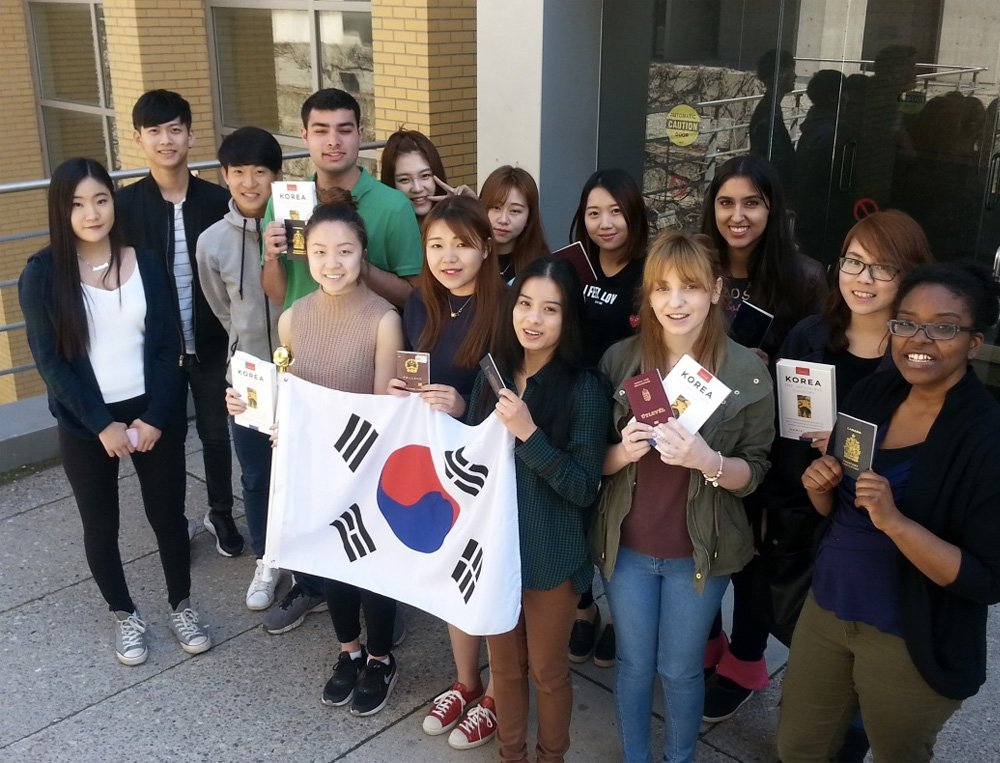This week I'll be trying a more thematic series that comes from personal experience and much discussions with other colleagues and I though could be of use to many readers on the platform. Again, I want to be able to culturally translate the experiences I've had and researched to be useful to others in their similar experiences whether it be social, ethnic, cultural, educational etc.
Ever since starting college over 10 years ago, I've spent several years studying and pursuing other educational programs abroad from Italy to Germany (with Hither Yon) to many Asian countries. During that same time, my radio and life partner Ryu has spent over half a decade “studying abroad” (which seems silly since she has spend close to half her life in America). From our cumulative experiences, we realized more and more that the concept is not merely a logistical one of studying in another place. Rather, it is a much more complex social situation depending on why you're studying there, where you come from, what the eventual expectations are, and a whole number of other factors. So I thought this could be a Frommers or Rick-Steve's type of approach to studying abroad – giving preface and context to the significance of learning in another place. The more we researched, from both an American and Korean perspective, the more we were able to motivate significant discussion.
To try this out, we'll bring up a topic and/or tip each day and extrapolate our though process behind them. Let us know what you think or if you have other specific inquiries!
대학교 1학년때 처음으로 “유학생” 이라는 그룹의 친구들을 만났습니다. 한국 유학생 뿐만아니라 각 나라에서 온 다양한 학생들까지도요.지난 10년동안 학계에서 지내며 오랜시간동안 다양한 나라에서 미국으로 오는 친구들을 만나며 다들 각 국가만의 유학 문화 성향을 보았습니다.
유학은 학생들의 일차적인 학문의 목적도 있지만 그 학생이 어느나라에서 왔느냐, 인종이 무엇이냐에 따라 배움에 대한 태도, 궁극적으로 어떤 경험을 지향하는가 등 매우 복잡한 국가적 문화, 사회 성향에 따라 같은 미국 교실 내에서도 다른 유학의 경험을 합니다.
Why are you studying abroad? 왜 유학을하심니까?

Before we even begin, we have to tackle the most basic question – why are you studying abroad? Is it aimed to be a short cultural blast during college years? Is it a pathway to learning of industries and knowledge pools inaccessible in your 'home' country? Is it due to societal pressures and expectations? Is it a transitional means to emigrate to another country? Is it related to hobby or profession?
In recent years, colleges worldwide have adopted the programmatic imperative that students take at least one semesters abroad. The typical benefits are put forth – engaging new cultures, learning a new language, immersing yourself in a completely foreign historical context, etc. But if you go a bit deeper below the surface explanation, there is a whole complexities of circumstances that influence or even dictate a person going somewhere to study a certain thing.
One thing I learned much more about is the reverse perspective. Americans have a relative anchor in the country and are typically return after a period of studying abroad. Students from the European Union or Latin America for example are less tethered and it isn't surprising to see individuals roam nationally for a while. Now that institutions are receiving students from completely foreign parts of the world, there are even more political, cultural, and economic reasons why people go the places they do.
I won't go further than that in fear of being too specific but I wanted to start off this week with that broader, a bit more existential question of the choice itself. Starting tomorrow, I'll do posts on specific tips of handling studying abroad and getting the most out of it.
미국인들의 “유학”은 장기보다 단기적 성격이 더 큽니다. 잠시 다른나라에 가서 필요한 경험을 배워 익히고 미국에 돌아오는 연수의 개념이 강합니다. 이 공부 기간동안 미국사람들은 다른 나라 언어습득에 대한 의지가 강한편은 아닌것 같습니다. 대부분 한국에서 유학오신분들을 보면 장기적 계획을 하고 학위 이후의 삶을 생각하시고 오신분들을 많이 만났습니다. 제 주변에 유학오셔서 취직을 하고 미국에서 오랜 시간을 보내는 분들이 주변에 많이 있습니다. 반면에 남미나 유럽국가에서 온 친구들은 또 단지 미국 내 한도시에 머물기보다 이곳저곳 돌아다니며 한곳에서 꾸준히하는 친구들도 있지만 이 학교 저 학교 돌아다니며, 이 도시, 저 도시 살아보며 다양한 경험을 추구하는 친구들도 많이 보았습니다. 대부분 이 친구들도 자기 나라에 결국 돌아가는 숫자가 더 많습니다.
그럼 다음 유학매뉴얼에 관해 더 자세한 이야기를 들고 오겠습니다. :)
follow me @hansikhouse! | design collective @hitheryon

